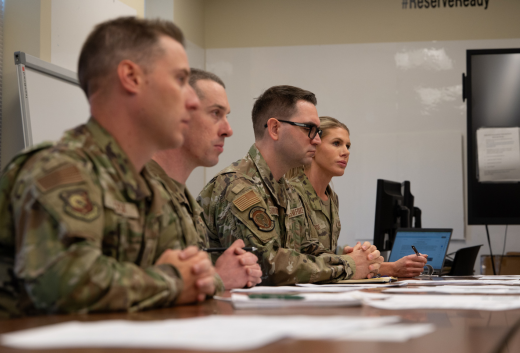Throughout my life, I’ve had some great and not-so-great mentors. Some may be there just for a season but the best stay with you through it all. I will never forget the phone call I received when we got our very first set of orders to come on active duty. A senior spouse at Fort Campbell called me — and the conversation lasted three hours. I didn’t have the first clue about being a military spouse, and my head was spinning with questions and emotions. At the time, all I could think was, “This lady has a lot to say,” and “How am I going to keep up with it all?” Looking back, she wasn’t just a wealth of knowledge, but became a trusted guide during that overwhelming time.
Navigating military life can be both rewarding and challenging. From frequent relocations to deployments and all the in-between moments, there’s a lot to manage. That’s where mentorship makes a difference. The right mentor can support your personal growth, professional development, and financial well-being. Let’s be honest, we could all use a little help (and maybe a good laugh) along the way! Here are some of the characteristics to look for when considering whether someone might be a good mentor to you.
The Good:
Experience and Knowledge + Networking Opportunities
Mentors who understand military life firsthand offer insights that can ease your journey as a spouse. Think of them as a personal GPS, guiding you through PCS moves, understanding military monetary benefits, and coping with the challenges of deployment — without inadvertently rerouting you or sending you in the wrong direction.
On top of their expertise, strong mentors often provide valuable connections — to job opportunities, resources, and supportive networks that can boost your career and strengthen your financial stability. Their guidance and connections can empower you to navigate your unique challenges with greater confidence.
Goal-Oriented and Supportive
Good mentors do more than just share advice — they help you set and pursue meaningful goals. Whether you’re exploring new job opportunities, pursuing education, or navigating a career pause, a mentor can guide you in making informed decisions that support your long-term financial health.
Think of it as having a personal trainer for your goals — someone who helps you stay on track, push through setbacks, and celebrate your wins. The steady support is especially valuable during transitions, like a PCS move or a career shift, when stability can feel out of reach.
Just as important, a great mentor provides emotional encouragement. Military life comes with unique stressors, and having someone in your corner can reduce the overwhelm. That emotional boost often leads to clear thinking, better choices, and greater financial confidence. A little encouragement can go a long way — sometimes, it’s the difference between staying stuck or moving forward.
The Bad:
Lack of Experience
A mentor without a solid understanding of military life may offer irrelevant or even harmful advice. It’s like taking advice from someone who thinks “PCS” stands for “pizza, chips, and soda” — not quite the guidance you need!
Negative Attitude and Vague Feedback
Mentors who are pessimistic about military life can discourage you from pursuing opportunities, stifling ambition and limiting personal and financial growth. If their feedback is unclear or overly generic, it can leave you feeling unsure — especially when you’re trying to make financial decisions like budgeting for a move, saving during a deployment, or starting a side hustle. If all you get is “just be careful with your money” without real guidance or context, that’s not support — it's a missed opportunity. A strong mentor helps you make confident, informed choices, not second-guess every step.
Self-Serving
If a mentor seems more focused on their own image or interests than on helping you, beware. This can look like pressuring you into decisions that don’t align with your goals — like hosting extravagant events or planning expensive trips that don’t fit in with your budget. A mentor should support your success, not compete with it.
The Bottom Line
Mentorship can have a lasting impact on your financial and personal success. A great mentor can help you find better job opportunities, grow your career, and make smarter financial choices.
Mentorship helps us meet the challenges of military life with more confidence. After all, who wouldn’t want to avoid the financial equivalent of stepping on a LEGO® in the dark?
So whether you’re looking for a mentor or considering becoming one, remember that a little humor, empathy, and genuine support can go a long way in making the journey a lot more enjoyable.
If you haven’t already, consider finding a mentor in your military community — or becoming one yourself. A simple conversation could change someone’s journey, including your own. Start by connecting with your local spouse club, installation support office, or online military spouse network. The guidance and encouragement you need — or that you can offer — may be closer than you think.
Get the Support You Need for Your Military Life
Our mission is to support servicemembers and their families. That’s why Armed Forces Mutual offers outstanding term and whole life insurance options for servicemembers, Veterans, and their families. Contact us today to learn more about how we can best support you and your family!





.webp)